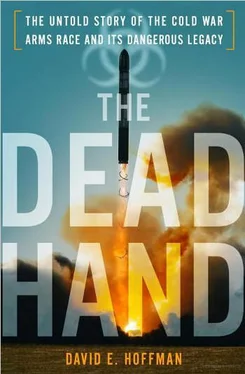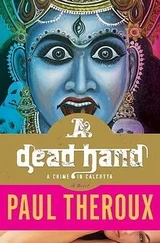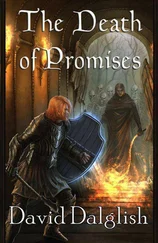In the early spring of 1943, Gorbachev was with other children, roaming the countryside, when they came to a remote stretch of forest between Privolnoye and a neighboring village. “There we stumbled upon the remains of Red Army soldiers, who had fought their last battle there in summer 1942. It was an unspeakable horror: decaying corpses, partly devoured by animals, skulls in rusted helmets, bleached bones, rifles protruding from the sleeves of rotting jackets. There was a light machine gun, some hand grenades, heaps of empty cartridges. There they lay, in the thick mud of the trenches and craters, unburied, staring at us out of black, gaping eye-sockets. We came home in a state of shock.”
Gorbachev was fourteen years old when the war ended. “Our generation is the generation of wartime children,” he said. “It has burned us, leaving its mark both on our characters and on our view of the world.”
After the war, Gorbachev worked in the fields each summer, “back-breaking labor twenty hours a day.” In high school, he was a good student and threw himself into the drama club and sports. School records showed Gorbachev had received top grades in Russian literature, trigonometry, history of the Soviet Union, the Soviet constitution, astronomy. He graduated in 1950 with a silver medal. 15For those long summers in the fields, he had also won an award, the Order of the Red Banner of Labor. This was a rare award for a schoolboy and most certainly helped Gorbachev win a place at Moscow State University, the most prestigious in the country, in the law department. 16
Arriving in the capital in September 1950, at nineteen years old, the peasant boy was disoriented for the first few months in the bustling metropolis. Freshmen students lived twenty-two to a dorm room; for a few kopeks they could buy tea in the cafeteria, with unlimited free bread on the tables.
Gorbachev joined the Communist Party in 1952. To be a Communist then was to be a Stalinist. The first two years of his university life coincided with Stalin’s anti-cosmopolitan campaign, aimed at Jewish scholars and writers. This was an eye-opener for Gorbachev. He recalled that one morning, a friend, a Jew, had been confronted by a shouting, taunting mob and then crudely shoved off a tram. “I was shocked.”
By his own account, Gorbachev was taken with Soviet ideology, like many of his generation. “Communist ideology was very attractive for young people then,” he recalled. “The front-line soldiers came back from the war, most of them young people, filled with the pride of victory.” The younger generation hoped that war, famine and the Great Terror were things of the past, and believed they were building a new society of social justice and people power. 17
Stalin was part of this fabric of belief. Stalin’s “Short Course” of the history of the party was held up to students as “a model of scientific thought,” Gorbachev recalled. 18The students “took many of the professed theses for granted, sincerely convinced of their truth.” Gorbachev was a leader of the Communist Youth League, known as the Komsomol. In high school he had written a final exam paper in which the title was borrowed from a song, “Stalin—our combat glory.”
But Gorbachev also was restive, and twice caused a stir by mildly speaking out against authority at the university. Once he wrote an anonymous note to a lecturer who mechanically droned on by reading Stalin’s work verbatim to the class. This was disrespectful to the students, Gorbachev said, since they had already read the book. Gorbachev admitted to writing the note, which touched off an investigation, but no action was taken.
When Stalin died on March 5, 1953, Gorbachev joined the huge mourning crowds in Moscow’s streets. He was “deeply and sincerely moved by Stalin’s death.” But in the years that followed, Gorbachev came to see Stalin differently. On February 25, 1956, Khrushchev delivered his famous “secret speech” at the 20th Party Congress denouncing Stalin’s personality cult and use of violence and persecution. Only after the speech, Gorbachev recalled, “did I begin to understand the inner connection between what had happened in our country and what had happened to my family.” His grandfather Pantelei had said that Stalin didn’t know of his torture. But maybe Stalin was the one responsible for the family’s pain.
“The document containing Khrushchev’s denunciations circulated briefly within the party, and then it was withdrawn. But I managed to get my hands on it. I was shocked, bewildered and lost. It wasn’t an analysis, just facts, deadly facts. Many of us simply could not believe that such things could be true. For me it was easier. My family had itself been one of the victims of the repression of the 1930s.” 19Gorbachev later frequently called Khrushchev’s speech “courageous.” It was not a total break with the past, but it was a break nonetheless. He felt once again as if illusions about the system were falling away. Gorbachev saw this as a reason to be hopeful, but he was also aware that many people, especially those in an older generation, were skeptical and downright confused. Not everything was clear for Gorbachev, either. How could everything they had believed in be wrong?
While at the university, Gorbachev met and married Raisa Titorenko, a bright philosophy student. In the two years after Stalin’s death, Moscow began to open up to new ideas, often expressed in literature. Ilya Ehrenburg’s novel The Thaw , a title that came to define the era, was published in 1954. Gorbachev met a young Czech student at the university, Zdeněk Mlynáář, who became Gorbachev’s best friend in those years, and they enjoyed stormy debates late into the night in their dormitory room. The university experience began to open Gorbachev’s eyes, but at the same time, “for me and others of my generation the question of changing the system in which we lived did not arise.”
Upon graduation in the summer of 1955, Gorbachev returned to Stavropol, where he found new evidence of the gap between rhetoric and reality. Many saw this but did nothing; what was different about Gorbachev was his capacity to be shocked by it. During his university days he held a summer job in a local procuracy in Stavropol, but was appalled by the arrogant behavior of the apparatchiks. 20In a letter to Raisa written then, he described them as “disgusting.” He added, “Especially the manner of life of the local bosses. The acceptance of convention, subordination, with everything predetermined, the open impudence of officials and the arrogance. When you look at one of the local leaders you see nothing outstanding apart from his belly.”
Gorbachev decided on a career with the Komsomol, the party’s youth division, as deputy head of the “agitation and propaganda department.” This was a conformist career path. Gorbachev threw himself into the work, honing his speaking skills, often making trips around the region to exhort young people to believe in the party. 21The job brought him face-to-face with the bleakness of daily life, especially in the backwater rural corners of the Soviet Union. On one trip, he went to the most remote cattle farm in the region. After hiking through thick mud, Gorbachev arrived at a village of low, smoke-belching huts and blackened fences along the River Gorkaya Balka, and was shocked at what lay before him: poverty and desolation. “On the hillside, I wondered: ‘How is it possible, how can anyone live like that?’” Gorbachev’s impressions were shaped and deeply reinforced by his strong-willed wife, Raisa, who researched and wrote a thesis on peasant life in these years. She may have seen more of these desolate villages than he did. She trudged in boots and rode by motorcycle and cart through the bleak Russian countryside to carry out her research. 22
Читать дальше












